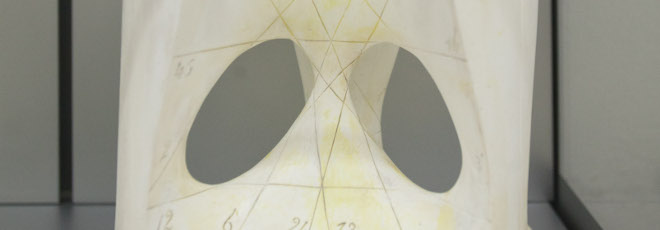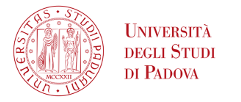
“Severi Varieties of nodal surfaces and coding theory: quartic and K3 surfaces”
Martedì 9 Aprile 2024, ore 16:30 - Aula 1A150 - Fabrizio Catanese (Universität Bayreuth)
Abstract
In the beginning elementary part I shall explain some basic notions about binary codes, vector spaces of functions with values in the field with 2 elements, giving examples and relying on basic linear algebra.
I will then explain the relation between coding theory and families of singular surfaces X, based on the first homology of the nonsingular part X* of X and, more generally, of the complement in X* of a hyperplane section D. If X is nodal, we get two binary codes K and K’.
I will explain some theorems relating the space of nodal quartic surfaces and the set of isomorphism classes of some binary codes. These theorems and the related links between surfaces and codes work particularly well in the case of K3 surfaces, as they are determined by their periods. This relationship can be exploited without the use of computers, and allows to answer a problem that had been open for more than 150 years.
I will then consider some possible future developments, in the hope to treat similarly all singular K3 surfaces, with ADE or RDP singularities. One key feature is the relationship between adjacency and smoothing on the geometric side, with the notion of shortening as code theoretic counterpart.
Short Bio
Fabrizio Catanese is a distinguished Italian mathematician specializing in algebraic geometry, complex analysis, and related fields. He obtained his degrees from the Scuola Normale Superiore in Pisa and the University of Pisa in 1972. Throughout his career, Catanese has held esteemed academic positions, including professorships at the University of Pisa, University of Göttingen, University of Bayreuth, and Centro Beniamino Segré of Accademia dei Lincei in Roma. He also served as director of ICTP in Trieste and CIRM in Trento.
His research focuses on moduli spaces of algebraic surfaces and the classification of both complex and real algebraic surfaces. Catanese’s outstanding contributions have earned him numerous awards, including the Gold Medal of the Italian Society of Sciences in 1993 and an ERC Advanced Grant in 2013. He has been a visiting professor at prestigious institutions worldwide, including the University of California, San Diego, ETH Zurich, Stanford University, Florida State University, the University of Michigan, Ann Arbor, Columbia University, Korea Institute for Advanced Study, RIMS in Kyoto, Max Planck Institute in Bonn, MSRI, Isaac Newton Institute, Institut Henri Poincaré, and Mittag-Leffler Institute, as well as in Hong Kong, Amsterdam, Utrecht, and CIRM in Barcelona. Currently, he also serves as an editor for the Journal of Algebraic Geometry.
Reservations




